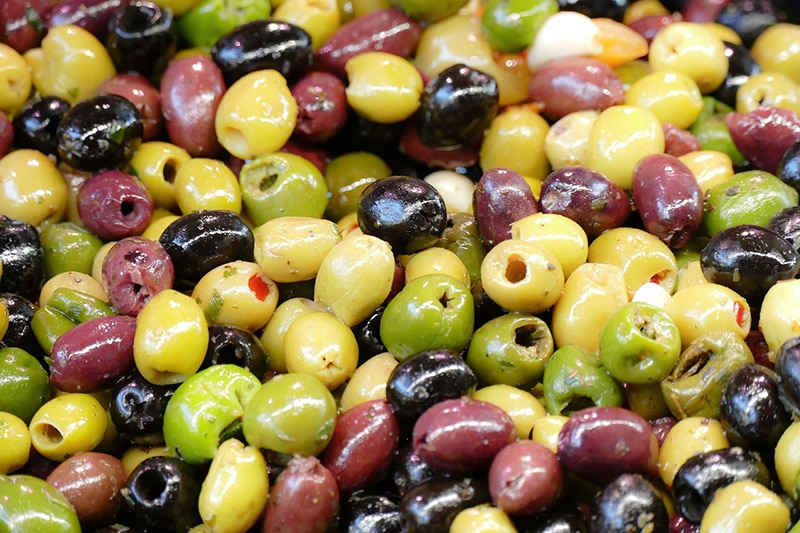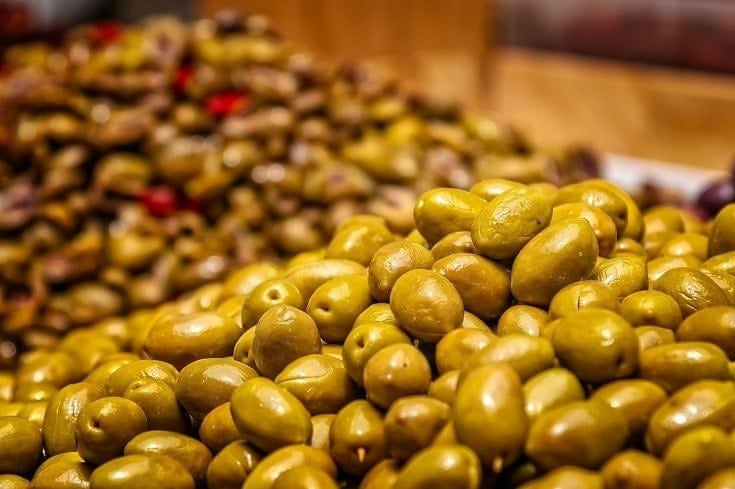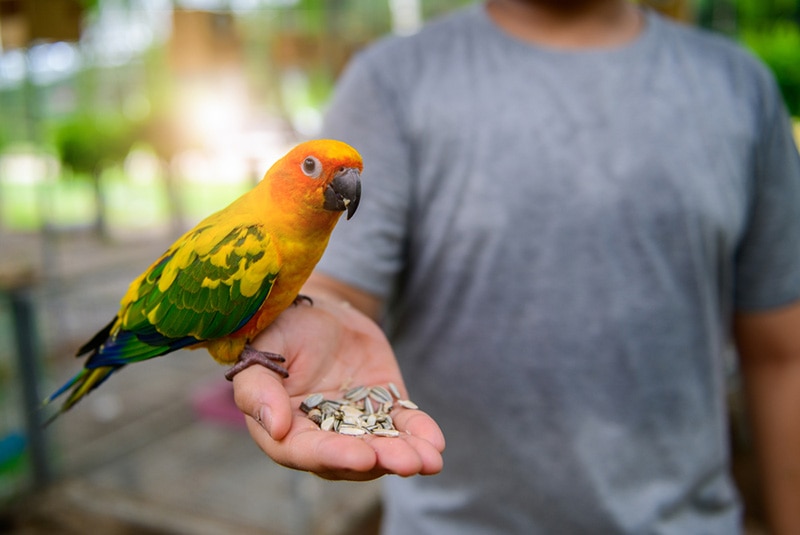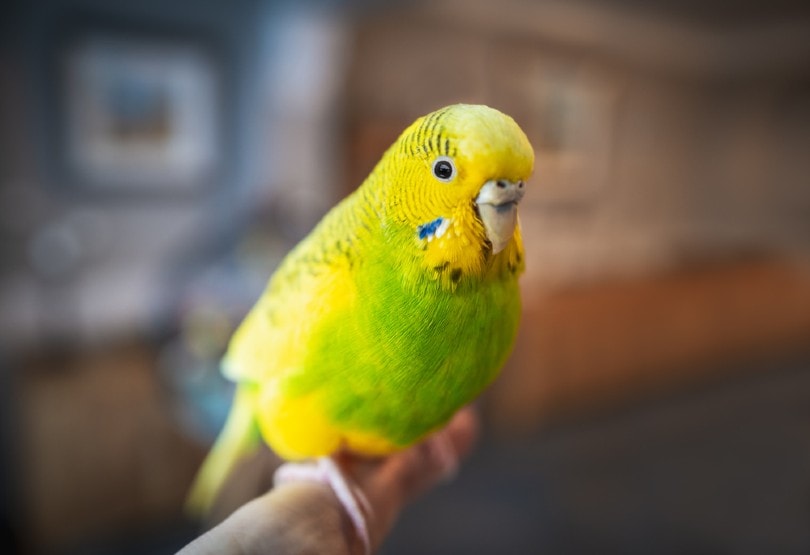Can Parrots Eat Olives? Vet-Approved Facts & FAQ
Updated on

Click to Skip Ahead
Olives are small fruits, chock full of antioxidants and healthy fats. They’re great on charcuterie boards, antipasto salads, and pizza, but they have a bit of an acquired taste for humans and birds alike. Since parrots generally love fruit, they must also enjoy and benefit from eating olives, right? Well, it’s not an easy yes or no.
Because there are so many parrot species, each with their own specific dietary needs, we’re going to focus specifically on larger species like blue and yellow macaws (Ara ararauna), African greys (Psittacus erithacus), and Amazons (Amazona farinosus), and smaller species such as parrotlets (Forpus) and lovebirds (Agapornis) for this article.
Olives are not toxic to some parrot species, but they aren’t the healthiest fruit option. So, while they may be a great addition to your charcuterie board, it’s best not to offer olives too often for your parrot.
While we’re on the topic of parrots, since many parrot species are endangered or threatened, some countries do not allow these particular species to be kept as pets to try to preserve the global parrot biodiversity. As a responsible parrot keeper, you must ensure your pet comes from a reputable breeder and the necessary papers required by law in your country.
Why Shouldn’t Parrots Eat Too Many Olives?
High-Fat Content
The biggest issue with olives is that they’re high in fat. A diet too high in fat can contribute to obesity, heart disease, and fatty liver disease. Some species of parrots, such as macaws and Amazons, may be prone to high cholesterol and atherosclerosis, so it’s important to focus on a healthy and well-balanced diet

.
High Calories
A 100-gram serving of pickled green olives contains 145 calories, making this a super high-calorie fruit. Parrots that eat too many calories will eventually gain weight and may even become obese. Pet birds are especially at risk for obesity as they don’t burn off as many calories as their wild counterparts.
High Sodium Content
Olives have a relatively high sodium content because they’re packaged in brine or saltwater. While, like us, parrots do require sodium in their diets, too much can be problematic. Even a small amount of salt can upset your parrot’s delicate electrolyte and fluid balance, causing issues like excessive thirst and dehydration. Excess salt consumption can cause kidney failure, accumulation of bodily fluids, depression, tremors, and even heart failure.
Olives fresh off the tree may not be as high in sodium, but since they’re quite bitter, your bird may not show any interest in them.
Choking Hazard
Olive pits can cause choking, breathing problems, and blockages in your parrot’s digestive system if ingested.
Are There Any Benefits of Olives?
Antioxidants
Olives are full of antioxidants, molecules that neutralize the free radicals that can harm the body’s cells. Vitamin E is a powerful antioxidant found in abundance in olives. It has an important role in the immune system function of birds.

Healthy Fats
They contain a good dose of healthy fats, which parrots require in their diet for numerous reasons. Healthy fats act as a source of energy and provide immune system support and hormone regulation.
However, if you are feeding your parrot a proper species-specific diet, they will already be getting vitamin E and healthy fats from it. So, olives would not really benefit their overall health.
Do Birds Eat Olives in the Wild?
Birds of many species will eat olives right off of the trees in the wild. However, uncured olives contain oleuropein, a molecule responsible for an olives’ trademark bitter taste, which makes them quite undesirable to eat.
What Should Parrots Eat?
Wild parrots can eat fruit along with seeds, nuts, and other vegetation, so you might think this same diet is ideal for your companion bird. The truth is that your pet parrot’s nutritional needs are quite a bit different from their wild counterparts.
While you can certainly feed your pet parrot’s seeds, the seeds you’ll offer will be much different than the ones they’d be exposed to in the wild. Wild birds eat a variety of seeds throughout the changing seasons, providing them with more variety than is generally available in a pet bird’s seeded diet. Seeds you can find in pet stores are typically nutritionally imbalanced and do not contain the necessary vitamins and minerals your parrot needs to thrive.
Pellets are the ideal diet for most companion parrots. They’re designed to be nutritionally complete and should, therefore, make up the bulk of your pet’s diet. Fresh produce should comprise no more than 15% to 30% of your pet’s diet. Bright orange, yellow, and red veggies and fruit are chock full of vitamin A, which is an essential nutrient for your pet’s health.

Final Thoughts
While olives aren’t toxic for parrots, they’re certainly not the healthiest fruit to offer your feathered friend. But as pet owners, we do love to give our bird a treat or two. Instead of olives, opt for species-appropriate treats that will be more nutritious than olives.
Featured Image Credit: Avdeyukphoto, Shutterstock













